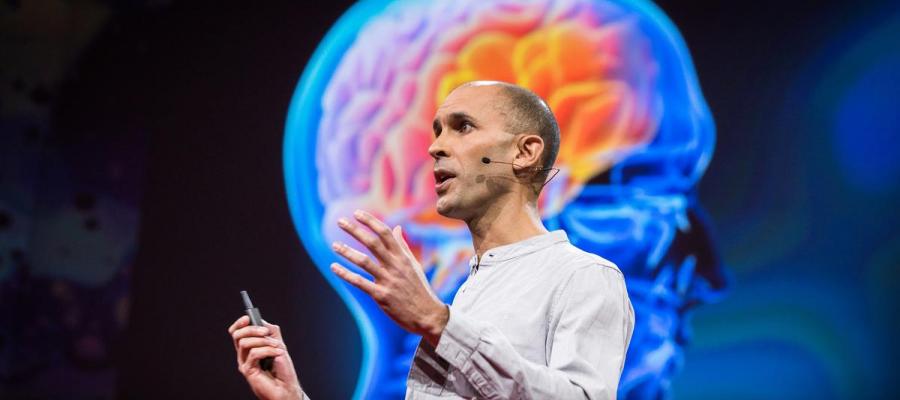Consciousness
Apr 06, 2004Is the conscious mind just the brain or something more? Can science explain consciousness? How does Ken know that John is a conscious b...

Consciousness. It's a phenomenon that makes humans different from robots, but how exactly does it happen?
In this Ted Talk neuroscientist Anil Seth argues that consciousness is a controlled hallucination. Having less to do with intelligence than we often think, consciousness depends on how the brain predicts its world to operate. Since the brain cannot directly access the external stimuli it perceives (the brain must perceive stimuli through the senses), the reality it creates is thus a two way street: with it taking in electrical signals produced by physical objects and it projecting out its predictions onto the physical world. For this reason, the brain sometimes misinterprets physical reality, and "hallucinates" in the sense that its predictions (that are not physically there) become irrestible, even, to hear, sense, or see. Using several images that exploit certain cerebral failings, Seth confounds his audience in his explanation of how this happens.
Check out the TEDTalk here:
https://www.ted.com/talks/anil_seth_how_your_brain_hallucinates_your_con...
Comments (1)
Harold G. Neuman
Tuesday, October 10, 2017 -- 11:38 AM
I read the transcript fromI read the transcript from Anil Seth's TED talk. Carefully and twice, just to be sure I "got" what he was saying. It is a novel notion, to be sure. But, it sounds a bit like some of the things that are enunciated by Eastern disciplines: life is illusion; there is no self; all "right" thought and action must follow the eight-fold way; and so on. Seth's "images that exploit cerebral failings" are, on their face, little different from a necker cube; lines which which appear of different lengths, yet are the same; and a number of other popularly depicted visual conundrums; puzzles and, uh, "hallucinations". It is a way of talking about that which no one (so far), including Dennett and Combs, has successfully explained. One idea is as good as another. Mr. Seth has thought this out well and carefully. and his proofs ARE confounding, at least. Let us suppose he is dead on with his analysis. Let us suppose consciousness, as we understand it, is only a hallucination (or illusion). How would that understanding affect its' importance to humans? Would there be anything we could DO with that understanding? Moreover, as Graham Martin famously wrote in a book by the same title: Does it Matter? Consciousness may be the Ultimate Conundrum. Or not...